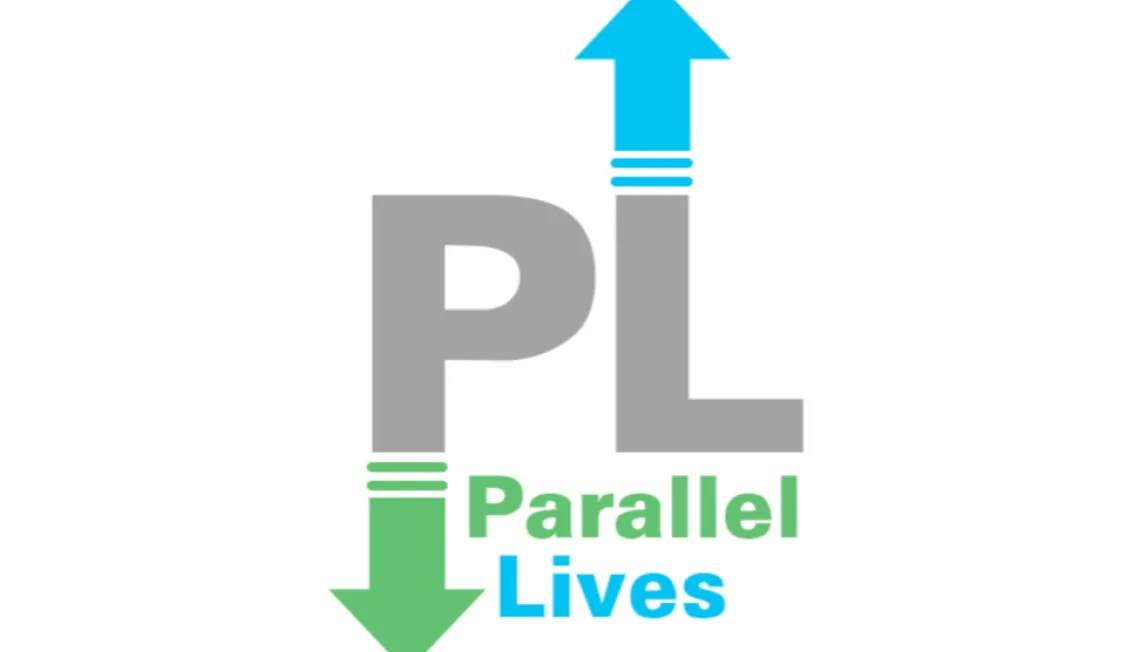Parallel Lives, delivered by Media Academy Cymru (MAC) and funded by the Violence Protection Unit, offers a 7-week intervention to families who have experienced Adolescent to Parent Violence/Abuse (APVA) in Swansea and Cardiff. It provides a therapeutic environment to parents/carers and the young person. It also aims to provide young people and families with the tools to recognise and challenge these behaviours and repair and build relationships.
About
Parallel Lives’ theory of change outlines a holistic, restorative approach to build stability, positive attitudes and pro-social behaviour within the families. The ultimate aim is to empower families and help them commit to making non violent, positive choices, leading to reduced violence and abuse within the home.
Four-tiered approach
“Yes- it’s a good experience and it shows you you’re not alone.”- YP aged 16
The project is based in strength-based and psycho-educational approaches. It has four tiers, which incrementally builds parents and young people up to the 7-week intervention.
The first tier is an advice and support line available via Zoom or telephone call. It is informal and anonymous. The advice offered to parents covers a range of issues such as talking through a safety plan and signposting relevant services.
The second tier is a weekly virtual coffee morning. The conversations are structured around a different topic each week. Topics include the cycle of change, self care and restoration approaches. The aim of these sessions is to gradually accustom parents to talking about and addressing issues, as well as getting support from others. The first- and second-tier virtual services are offered across Wales
The third tier is a one-day workshop introducing the main components of the 7-week workshops, which comprise the fourth tier. The parents/carers and the young people attend the seven weeks of sessions together.
Referrals
Referrals are made from a range of bodies, including schools, children’s services, social workers, early gateway support workers, charities including Women’s Aid, health specialists and the NHS, and police. Parents also self-refer.
Once someone is referred, MAC carries out their initial assessment to determine that what is being experienced is APVA. They take a multi-agency approach, carrying out a need-based assessment and designing an intervention plan alongside the service user, the referrer and other agencies involved with the family.
There are no set criteria for referrals. The main concern is that parents and young people consent to the programme and demonstrate a desire to change. If the young person appears reticent, the programme arranges to meet them separately to explain the service and the benefits of attending.
The programme has received referrals for younger people aged 5+ and young people with additional needs. The service is flexible and will adapt their content and delivery to be inclusive.
7-week intervention
“It’s given me the tools to move forward in trying to restore balance in the family.” - Parents of YP aged 16
Key themes identified at the start of the programme amongst the families include parent separation, history of or current domestic violence within the family, breakdown of communication, young person school refusal, bereavement, parents/carers feeling that the child is ‘the problem’ and not engaging with the workshop, APVA during ‘access’ time when the young person does not live full time with carer, lack of emotional literacy, etc.
Needs of the parents/carers identified include lack of confidence in parental abilities, lack of empathy towards child, feelings of hopelessness and shame, issues with setting behaviour management/communication strategies, etc. Needs of the young people included need for safety and consistency, inability managing/expressing emotions and maintaining positive friendships, having witnessed/been victim of domestic violence, additional learning or health needs, etc.
“Less conflict at home”
Each workshop seeks to address these varied needs and covers a different topic. The first workshop is an introductory/welcome session, which establishes confidentiality rules. The second covers behaviour and the third, needs and rights.The fourth covers communication, emotions and anger management. The fifth session focuses on active listening and developing empathy. The sixth session focuses on anger and de-escalation. From week 4 onwards the group begins to work on a shared creative activity to bring the family together, usually a canvas. The seventh session provides time for evaluation and reflection - of the course, progress and the future.
Every session starts with the parents and children together, who then complete the workshops separately, before coming together at the end for a short collaborative activity.
The sessions
The programme tries to group families who are completing the 7-week intervention according to age of the child and generally no more than three to four families per group. The facilitators adapt the sessions throughout the seven weeks to the needs of the families. If a child presents with additional needs they can be flexible and offer to work with families on a one-to-one basis.
The group sessions provide safe spaces for the families, mutual support from the other participants and a sense of not being alone. Additionally, the programme advocates with partners to foster a public health approach towards APVA, case managers support interventions, supports one-to-one referrals, signposts information and advice and provides ad-hoc crisis support in between sessions, as well as family action planning.
Evaluation
The project has been evaluated by the University of Swansea, which found, amongst other things, that Parallel Lives all of the parents/carers stated that the programme had helped them to develop strategies to reduce APVA and improve communication with their children and that all of the young people stated that it had helped them with anger issues associated with violent behaviour towards their parent(s), amongst other positive outcomes.
For more information, please contact Amanda Manley, Parallel Lives Case Manager at amanda@mediaacademycymru.wales.
Case study by Isabella Anderson, 2022.
Click here to return to the Map
